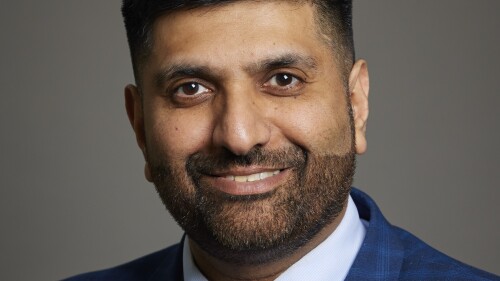The UK’s Ministry of Justice has imposed new rules aimed at curbing the spread of Islamist ideology in prisons. The measures, announced in late April, are part of an effort to reduce the terror threat posed by “highly ideologically motivated offenders,” said Ian Acheson, an expert on Islamist radicalization in UK prisons.
The new rules limit the number of books prisoners convicted of terror offenses can keep in their cells to two boxes, totaling 15 kilograms. The goal is to prevent the stockpiling or concealment of extremist literature. The MOJ has also banned prisoners convicted of terror offenses from taking leading roles in religious services to preclude them from exploiting the communal worship of Friday prayers to indoctrinate or radicalize fellow inmates, one in seven of whom is a Muslim.
In announcing the new rules, the MOJ stated that, “There are currently around 200 convicted terrorists in custody, many of whom attempt to justify their offenses through their flawed interpretation of religion.” An MOJ spokesperson told FWI that a “flawed” interpretation is one used by terrorist offenders to justify harming others.
The MOJ official also told FWI that books are not to be limited specifically by number and that a 15 kg volumetric limit on prisoners’ personal possessions was already in place. Five Islamist texts regarded as extremist by the prison service were banned in UK prisons in 2016. The new prison service instruction should bolster prison officers’ daily efforts to control illicit materials in cells, the official said.
The new rules come on the heels of two reports published in 2016 and 2022 that addressed the threat of radicalization in UK prisons. The 2016 report authored by Acheson, “Islamist Extremism in Prisons, Probation and Youth Justice,” warns that reluctance to confront Islamist extremism in UK prisons allowed jihadist radicals to dominate blocks or wings of prisons and “relentlessly undermine” order in the facilities.
The 2022 report titled, “Terrorism in Prisons,” authored by Jonathan Hall KC, a barrister and Independent Reviewer of Terrorism Legislation, also found that the UK’s Prison and Probation Service had “failed to recognize the dangers posed by Islamist gang-type activity and the influence of terrorist offenders.” The report also highlighted the growing prevalence of prisoners adopting an anti-state Islamist stance that condones or encourages violence. Additionally, the author reported that a 26 percent reduction in frontline operational prison staff between 2010 and 2017 had prompted guards to abandon an attitude of being “confident and in charge” in favor of a reactive “fire-fighting” stance toward Islamists under their control.
The MOJ commissioned the 2022 report after a series of terror attacks in 2019 and 2020 by Islamist extremists either in prison or recently released. The attacks included the stabbing deaths of two Cambridge University criminology graduates at a prisoner rehabilitation workshop near London Bridge by released prisoner Usman Khan in 2019, an attempted stabbing of a prison guard by Brusthom Ziamani and a Muslim convert accomplice in January 2020, and the March 2020 stabbing of two passersby in South London by recently released ex-convict Sudesh Amman, 20. The spate of attacks also included the stabbing deaths of three men in Reading, Berkshire, by Khairi Saadallah, a former member of Ansar Al Sharia, 17 days after he was released from prison for violent assault.
Acheson, senior advisor to the UK NGO the Counter Extremism Project and former prison governor, warns that the new measures will prove to be “fiendishly difficult” to enforce “If you are running a high security prison ... you are lucky to get from one end of the day to the other without a major incident,” he said. “So pragmatically, taking on highly ideological prisoners who have gang followings in prisons to limit the amount of material they have in their cells, is inevitably going to provoke a violent reaction. Prison governors think ‘We won’t be backed up if we try to do that, so we’ll just have to try to manage it.”
Despite recent recruitment of imams trained in countering violent extremist views and beliefs, there are not always enough to lead prayers,” Acheson said, adding that “Some of those who are [available] are not strong enough to call out any dissent that might exist.” The last thing a prison governor wants to do, Acheson explained, is to cancel Friday prayers for incarcerated Muslims, because the pushback from that is worse than a compromise that would allow someone from the congregation to lead the prayers if the imam is not present.
In a piece in CapX published by the British think tank, the Centre for Policy Studies, Acheson called on officials to recruit “suitable and sufficient numbers of well led prisons officers, clearly and confidently in charge of their facilities.”
The new rules are part of a spate of anti-radicalization polices enacted in recent years. In 2020, Parliament passed the Terrorist Offenders Act which ended the automatic early release of prisoners sentenced for terror offences. In 2021, it passed the Counter Terrorism and Sentencing Act, which introduced a 14-year minimum jail term for the most dangerous terrorist offenders.








